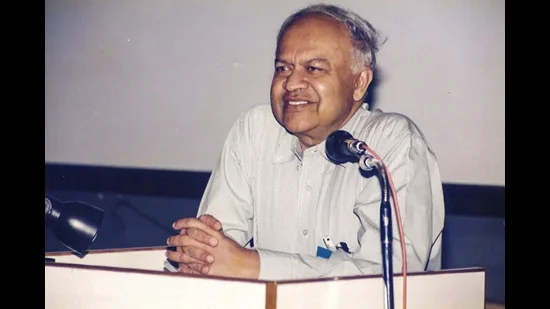
India Mourns Loss of Renowned Astrophysicist Jayant Narlikar, Champion of Alternative Cosmology
The scientific community in India and beyond is in mourning following the passing of Dr. Jayant Vishnu Narlikar, a celebrated astrophysicist, cosmologist, and science communicator, at the age of 87. Dr. Narlikar, known for his groundbreaking work in cosmology and his advocacy for alternative models to the Big Bang theory, passed away peacefully at his residence in Pune on May 20, 2025, after a brief illness. His death marks the end of an era for Indian science and leaves a legacy of profound contributions to our understanding of the universe.

Born in Kolhapur, Maharashtra, on July 19, 1938, Jayant Narlikar's passion for science was evident from a young age. He excelled in his studies, earning a B.Sc. degree from Banaras Hindu University before pursuing higher education at Cambridge University. There, he distinguished himself as a Wrangler and Tyson Medallist in the Mathematical Tripos. He continued to earn multiple degrees including a Ph.D. in astronomy and astrophysics and later remained at Cambridge as a Fellow of King's College.
Dr. Narlikar made a significant impact on the field of cosmology, challenging conventional wisdom with his alternative models to the Big Bang theory. His work with Fred Hoyle during his time at Cambridge laid the foundation for his groundbreaking research. He is internationally recognized for his contributions to understanding gravity, Mach's Principle, and quantum cosmology, solidifying his place as a leading figure in astrophysics. The fact that he served as President of the Cosmology Commission of the International Astronomical Union from 1994 to 1997 speaks volumes of the respect of his peers in the field.
Returning to India in 1972, Dr. Narlikar joined the Tata Institute of Fundamental Research (TIFR), where he revitalized the Theoretical Astrophysics Group and elevated it to international standing. He later founded the Inter-University Centre for Astronomy and Astrophysics (IUCAA) in Pune in 1988, an institution that has since become a center for excellence in astronomical research. Prof R Srianand, Director of IUCAA, described Dr. Narlikar's passing as an "unimaginable loss", highlighting his inspiring role and his dedication to spreading awareness about science.

Beyond his research, Dr. Narlikar was a dedicated science communicator, making complex scientific concepts accessible to the public through his writings, articles, and radio and TV programs in English, Marathi, and Hindi. UNESCO recognized his efforts with the Kalinga Award for science popularization in 1996.
His contributions were recognized with numerous awards, including the Padma Bhushan in 1965 at the young age of 26, and the Padma Vibhushan in 2004, two of India's highest civilian honors. Prime Minister Narendra Modi acknowledged Dr. Narlikar's death as a "monumental loss," lauding his pioneering works and his commitment to making science accessible to all.
Dr. Narlikar's legacy extends beyond his scientific achievements. He leaves behind a family, including his three daughters, Geeta, Girija, and Leelavati, all involved in scientific research, alongside a grateful scientific community and countless individuals inspired by his passion for unraveling the mysteries of the universe. At the age of 85, he started a blog, showing his eagerness to connect with the youth, and continues to share his stories about science and life.
Dr. Jayant Narlikar's passing marks the end of an extraordinary chapter in Indian science. His innovative spirit, coupled with his commitment to science communication, will continue to inspire generations of scientists and science enthusiasts to explore the cosmos and question the boundaries of our knowledge. What aspects of Dr. Narlikar's work do you find most fascinating, and how do you think his legacy will shape the future of cosmology? Share your thoughts in the comments below.